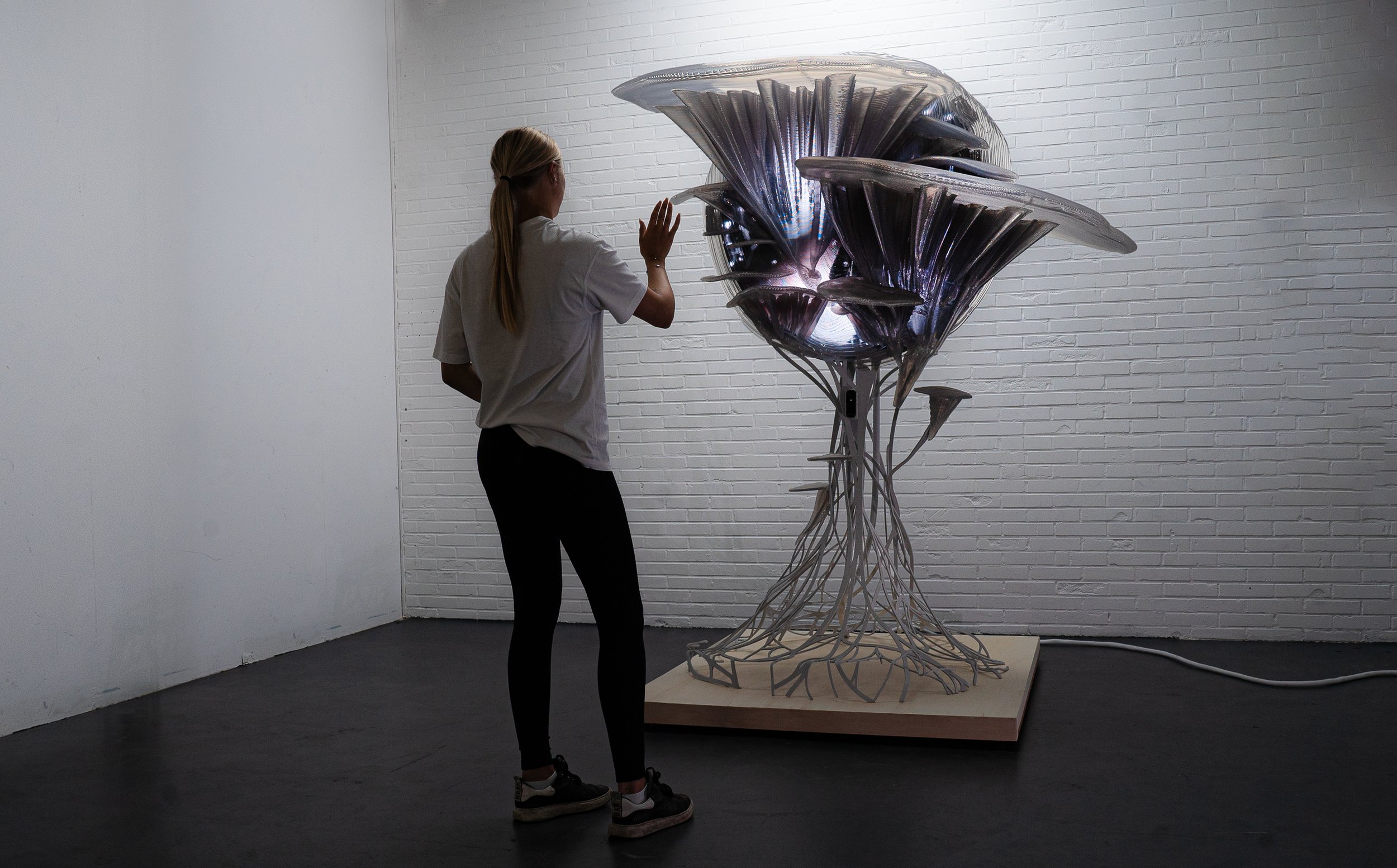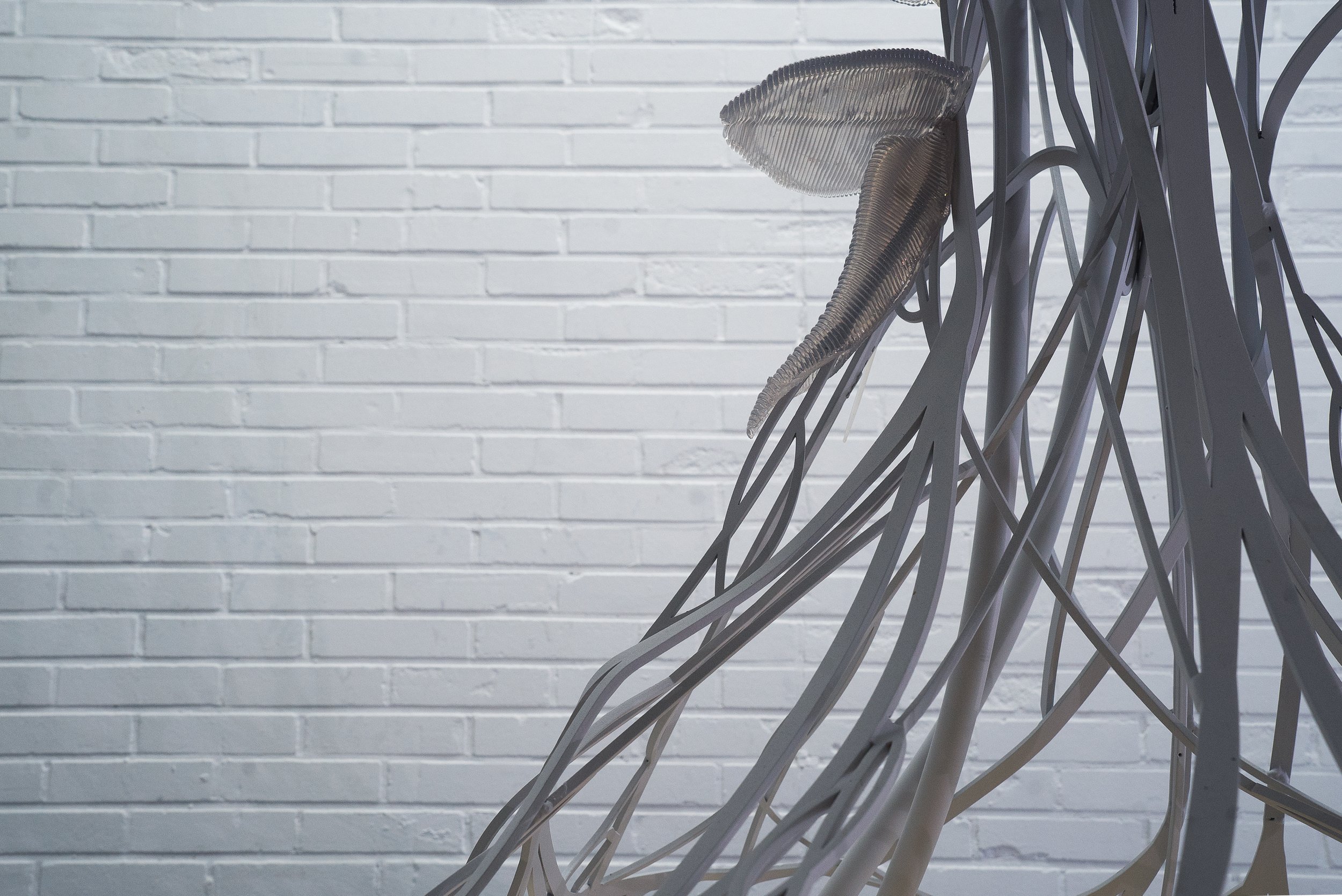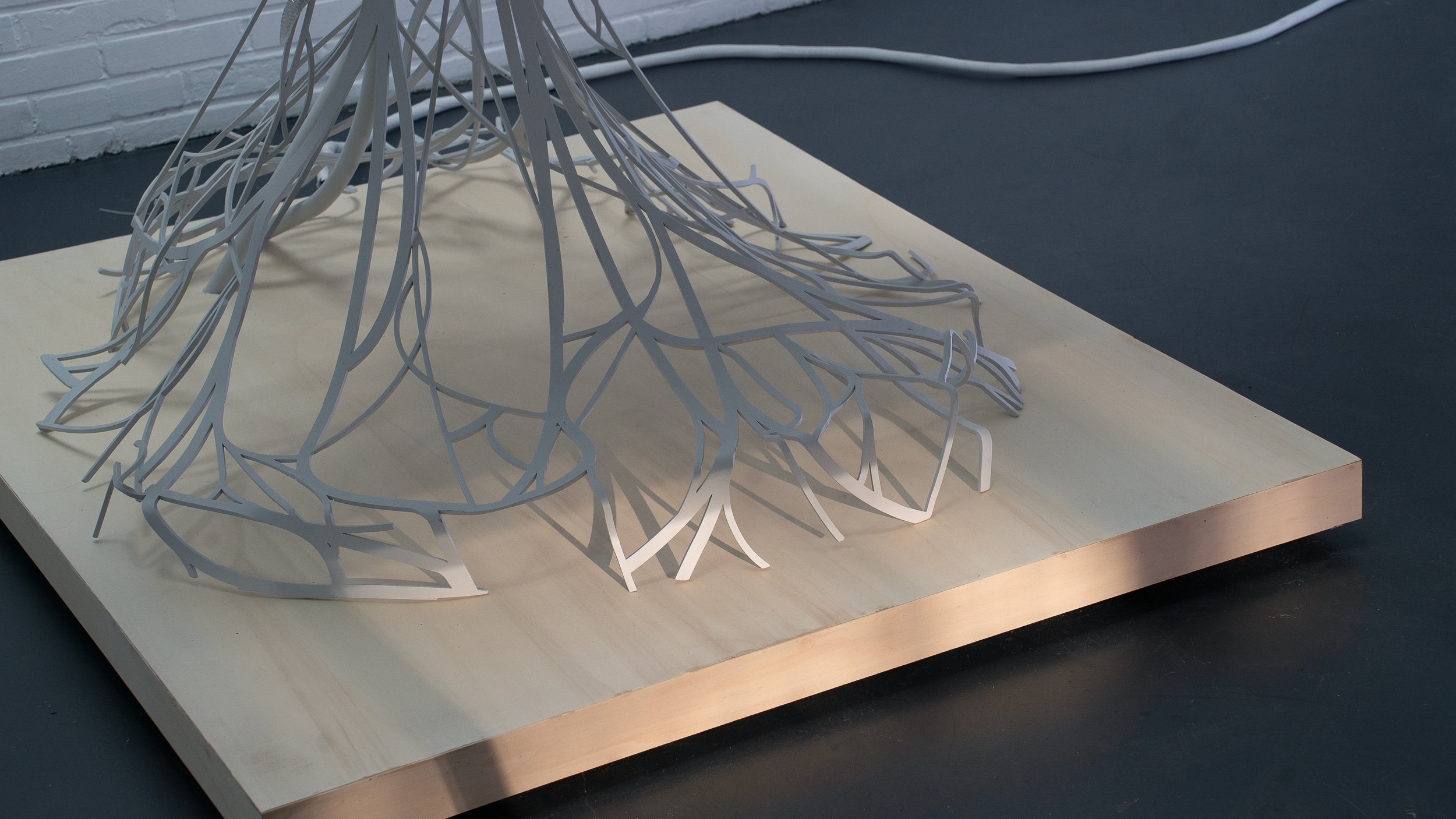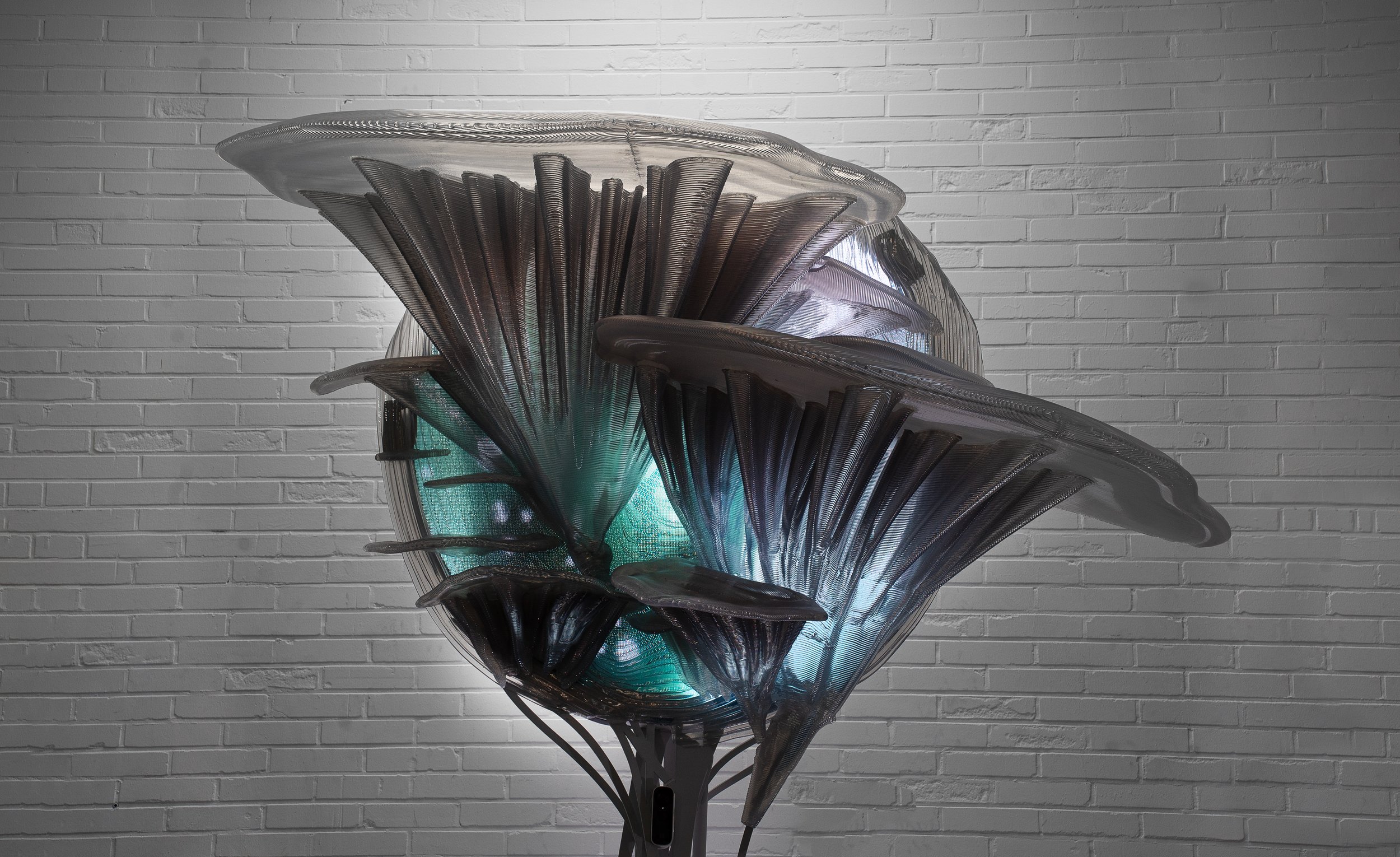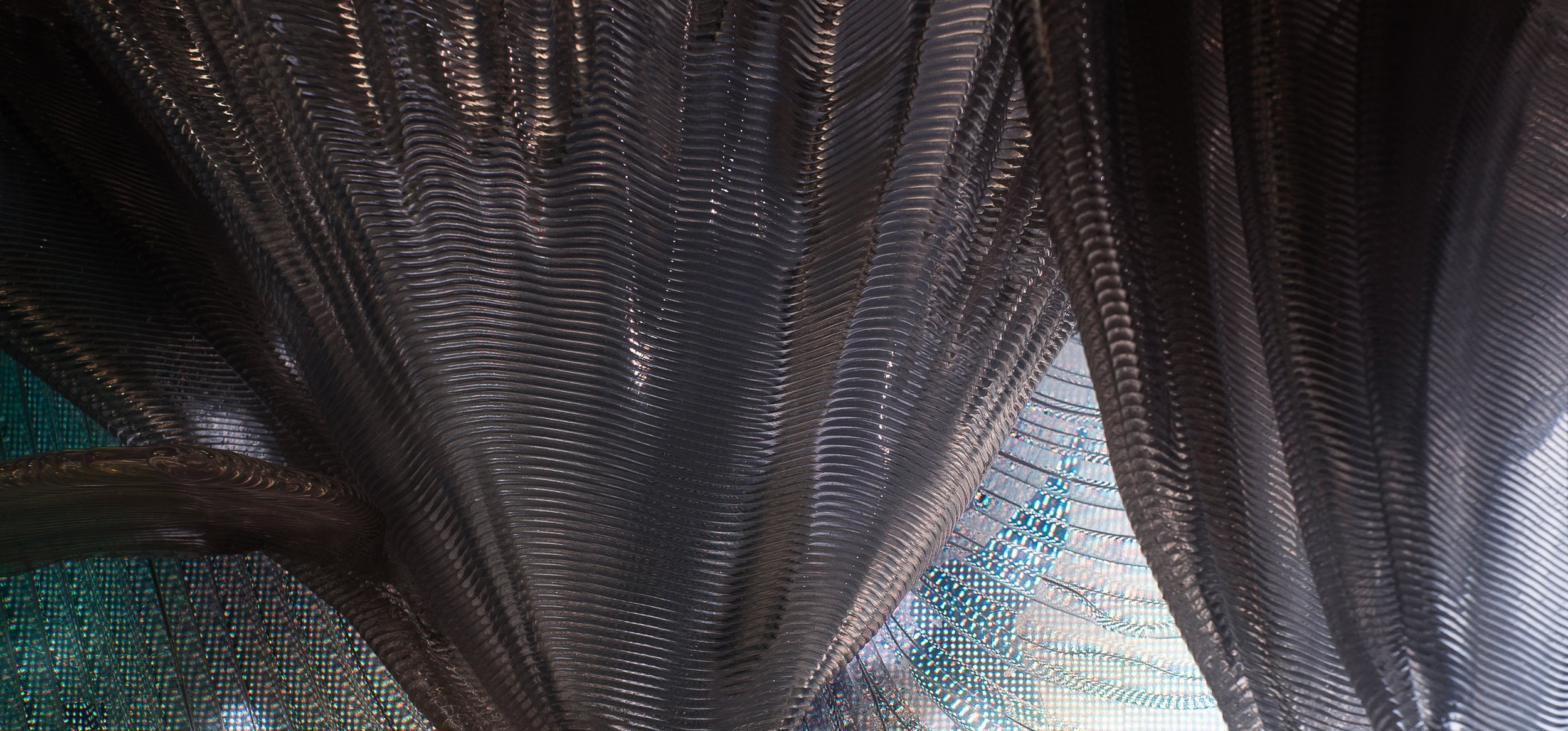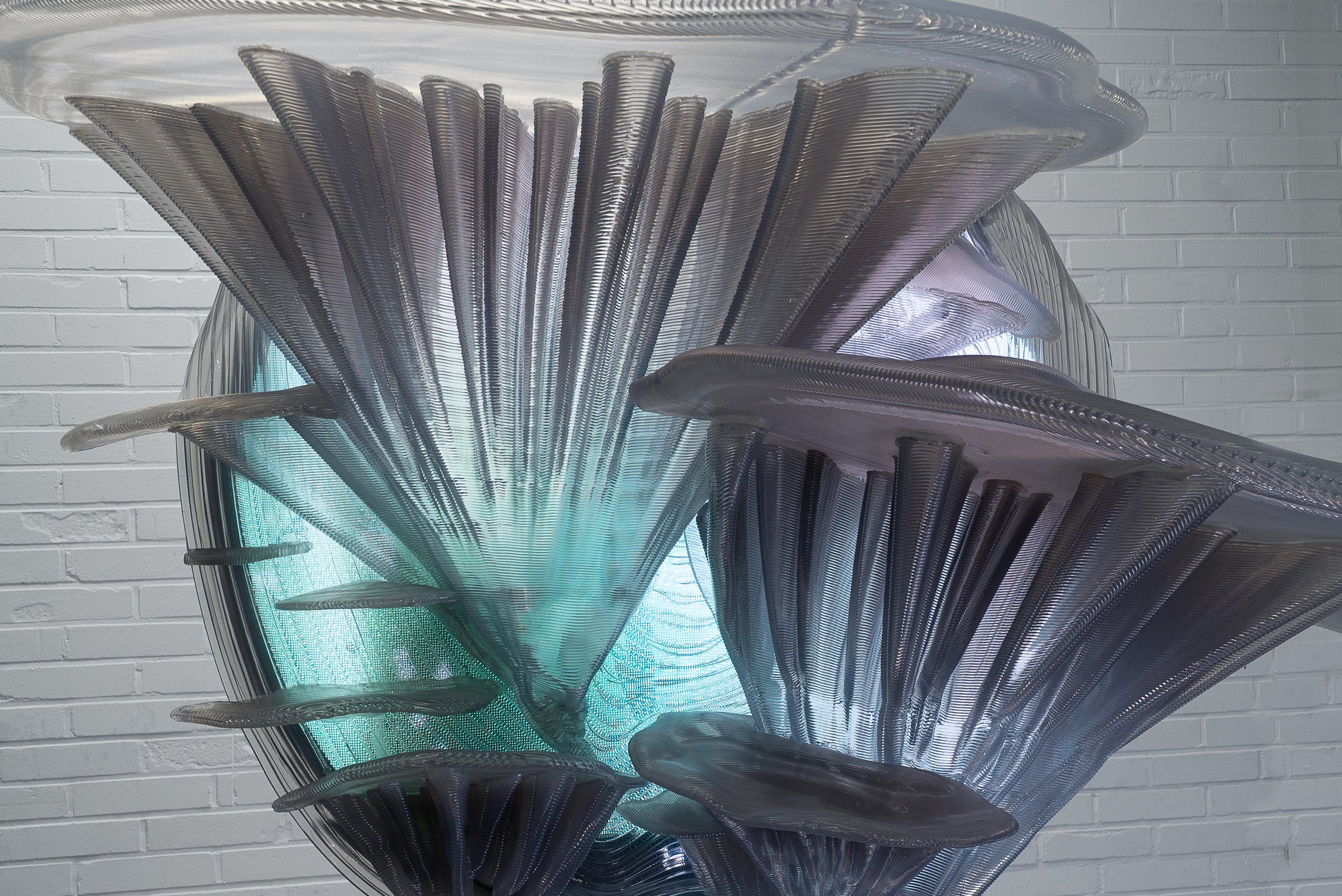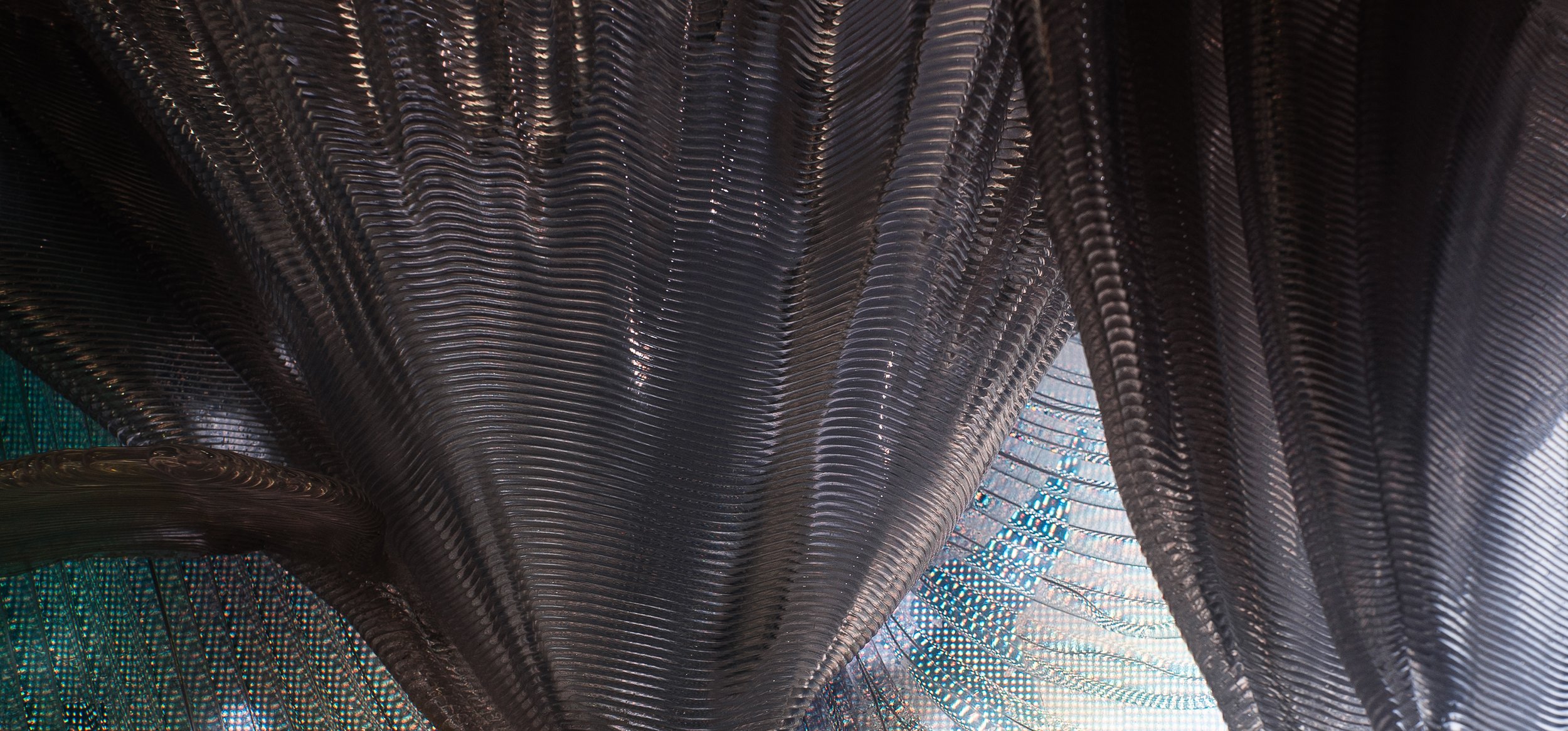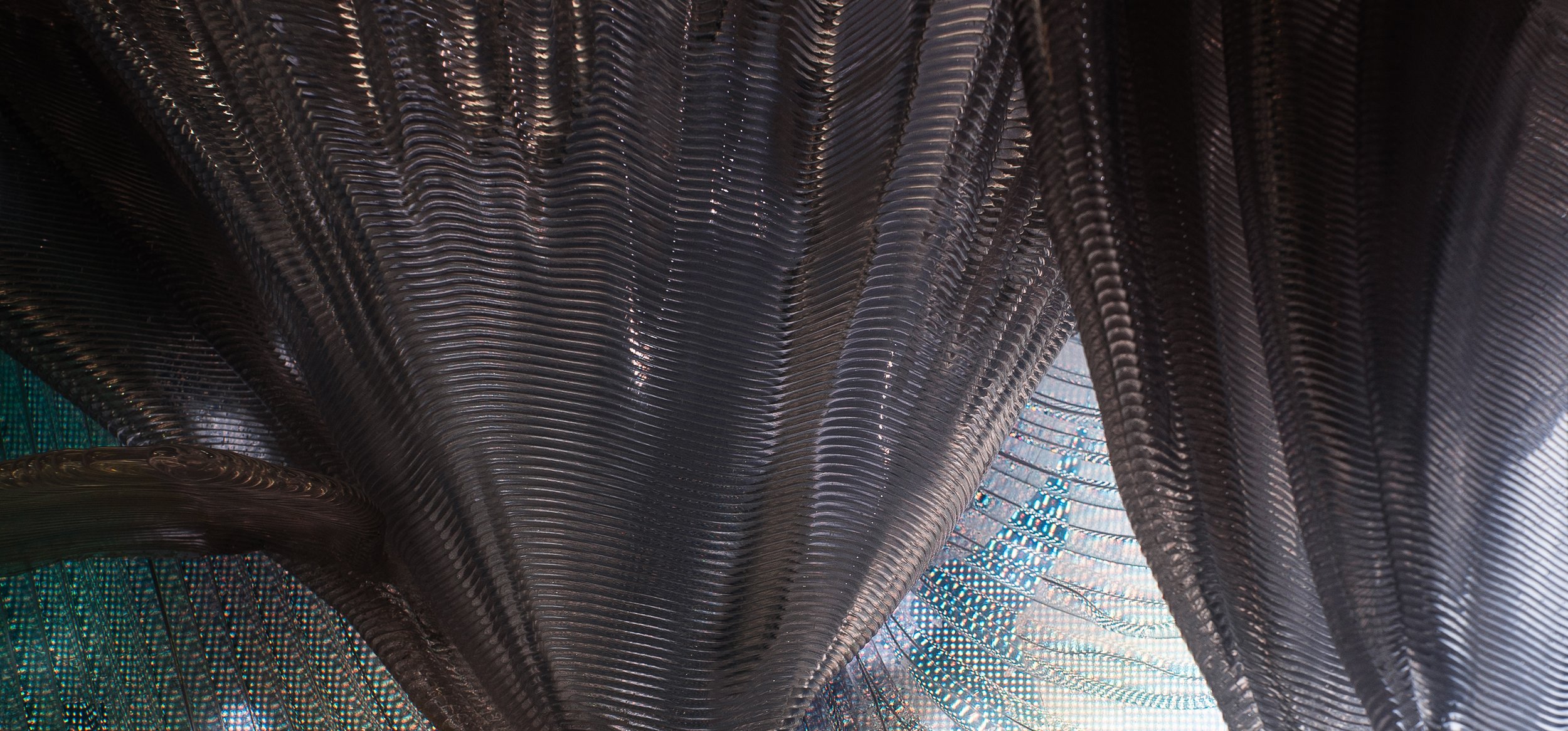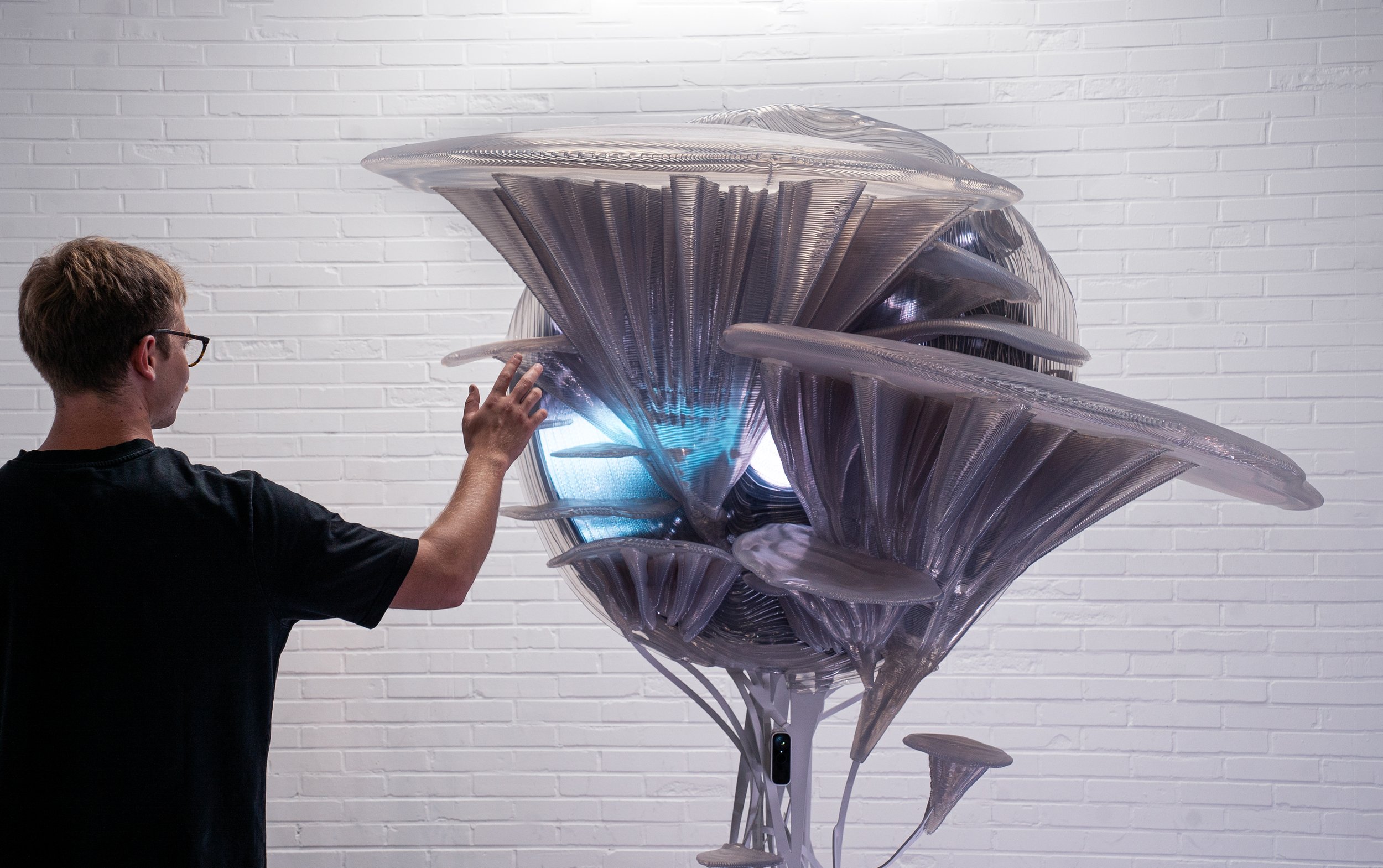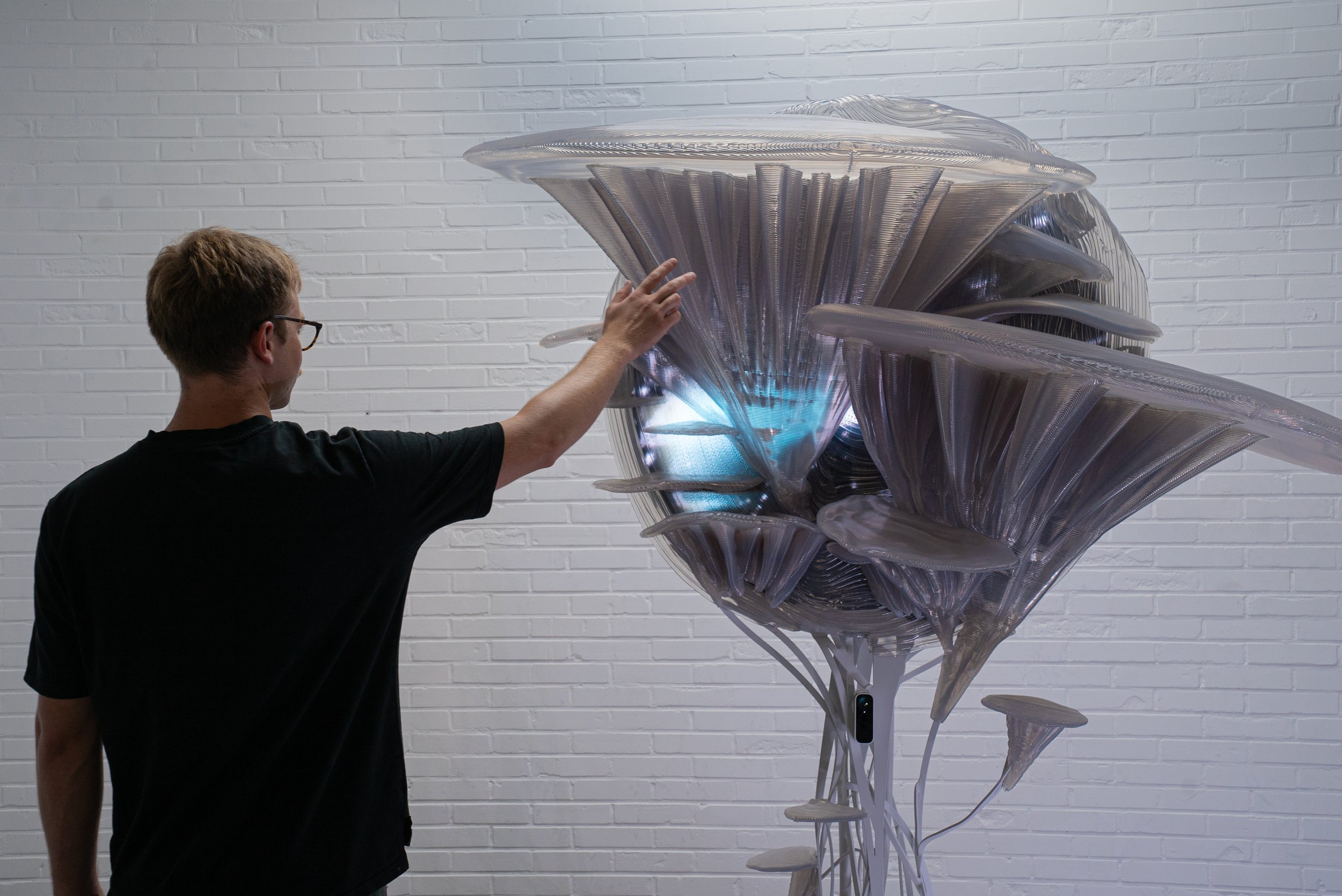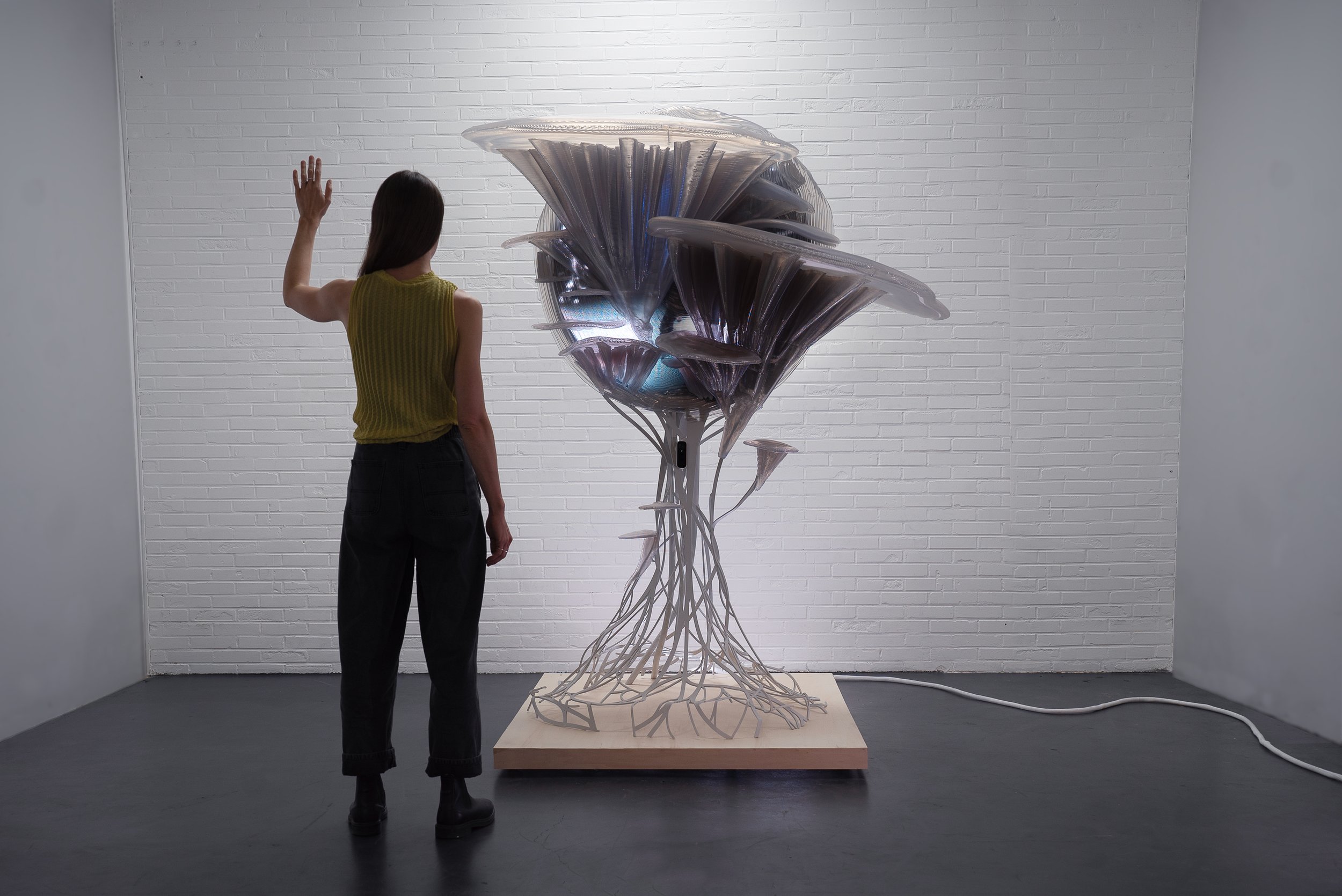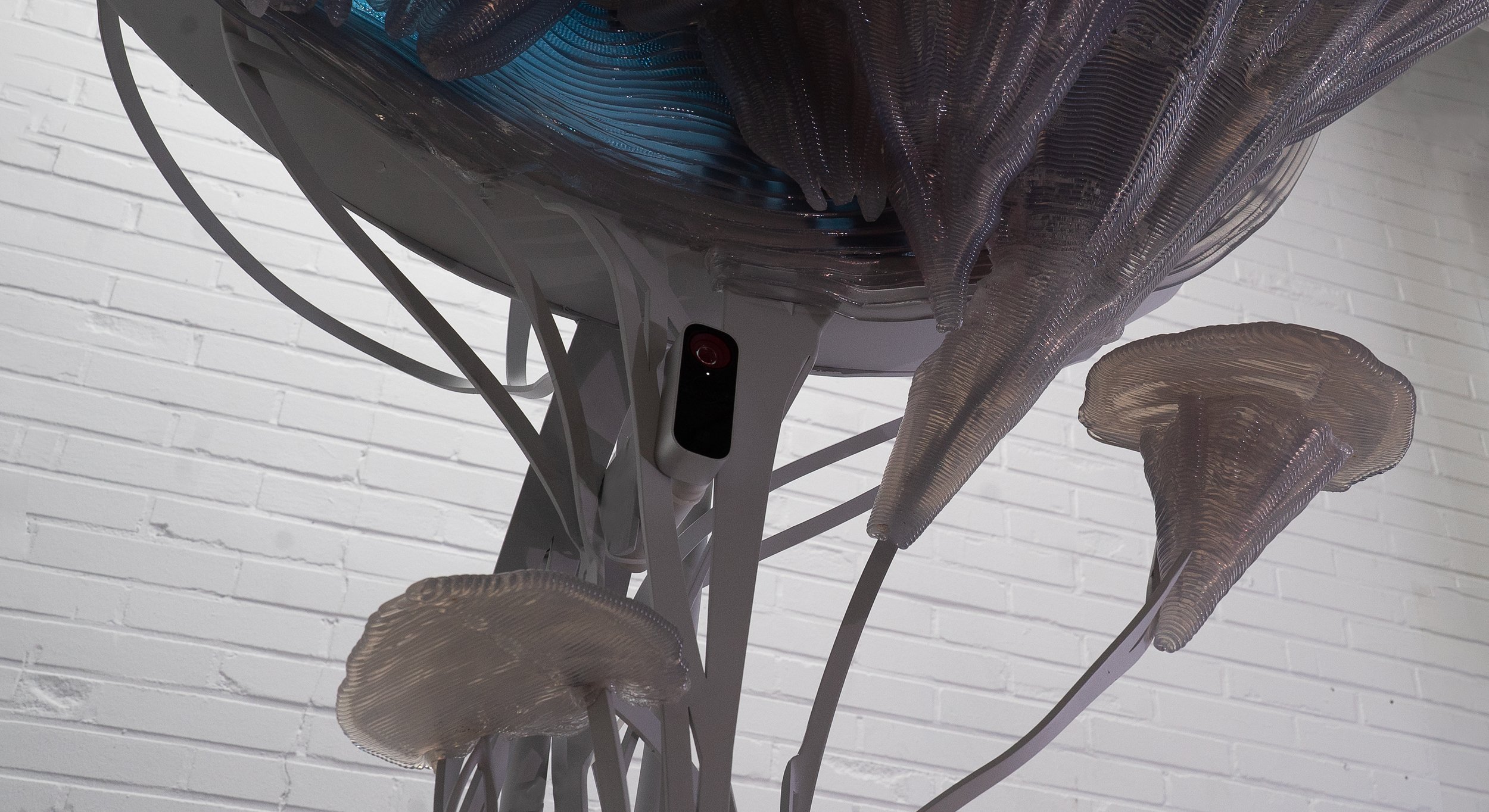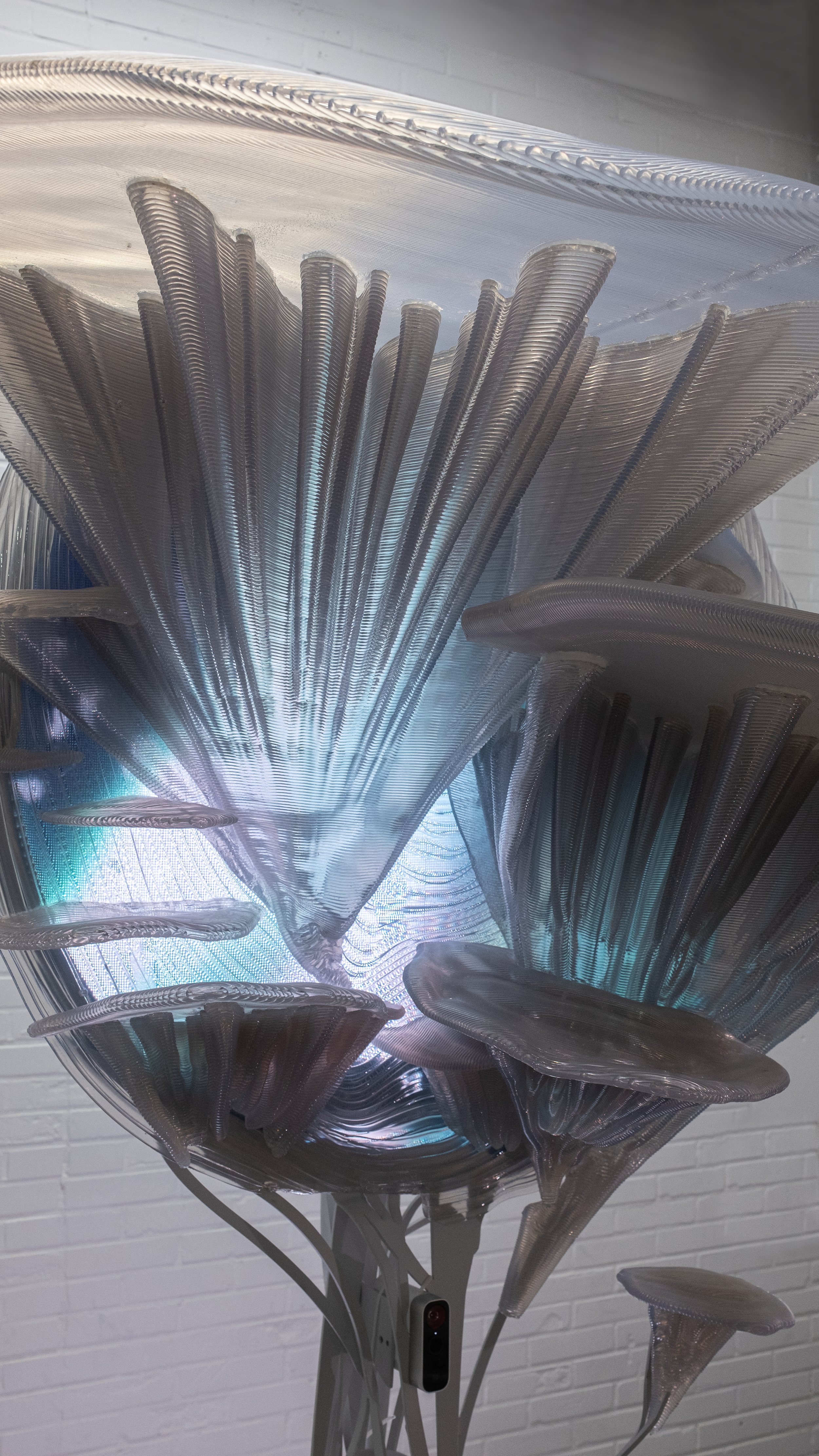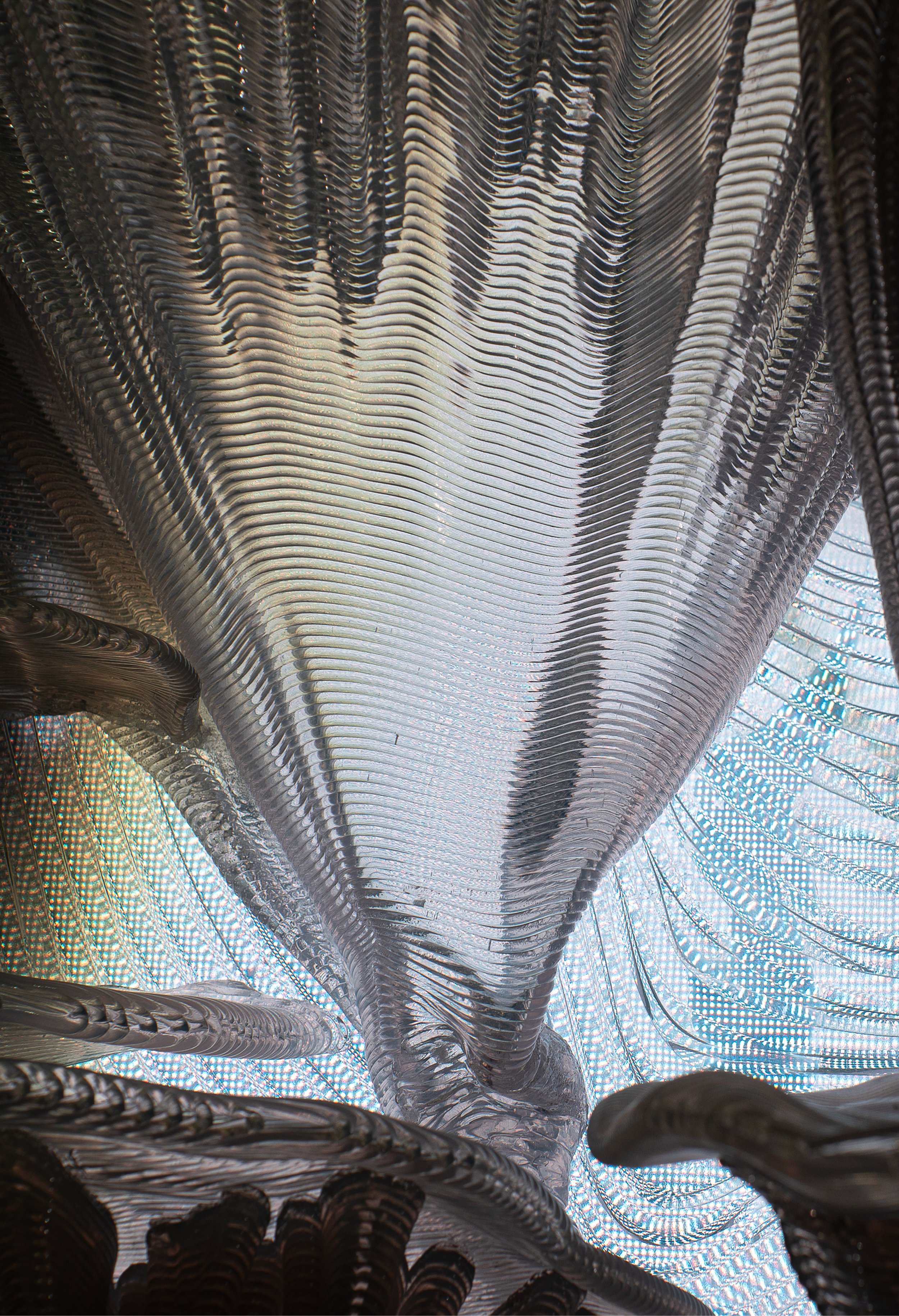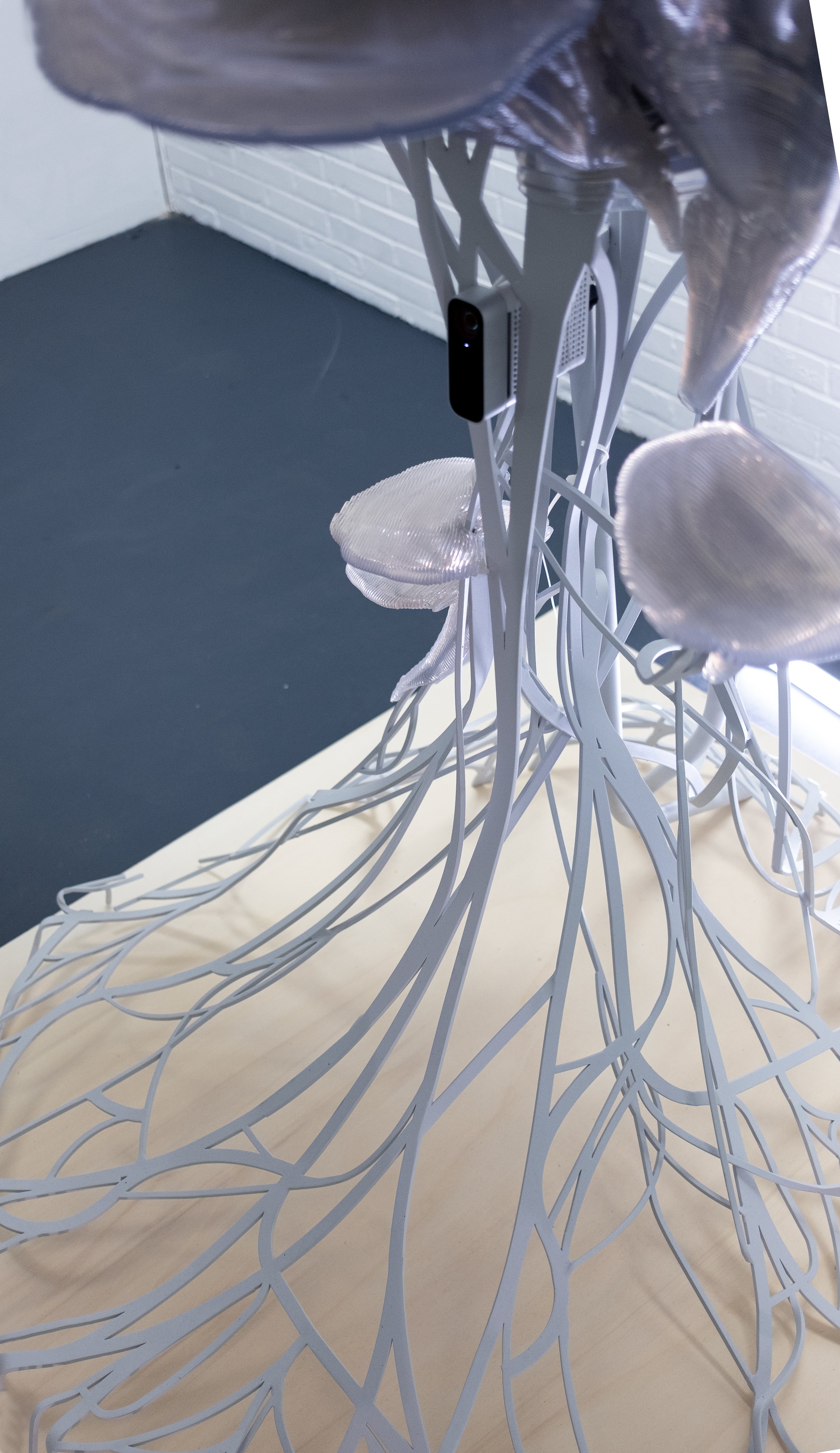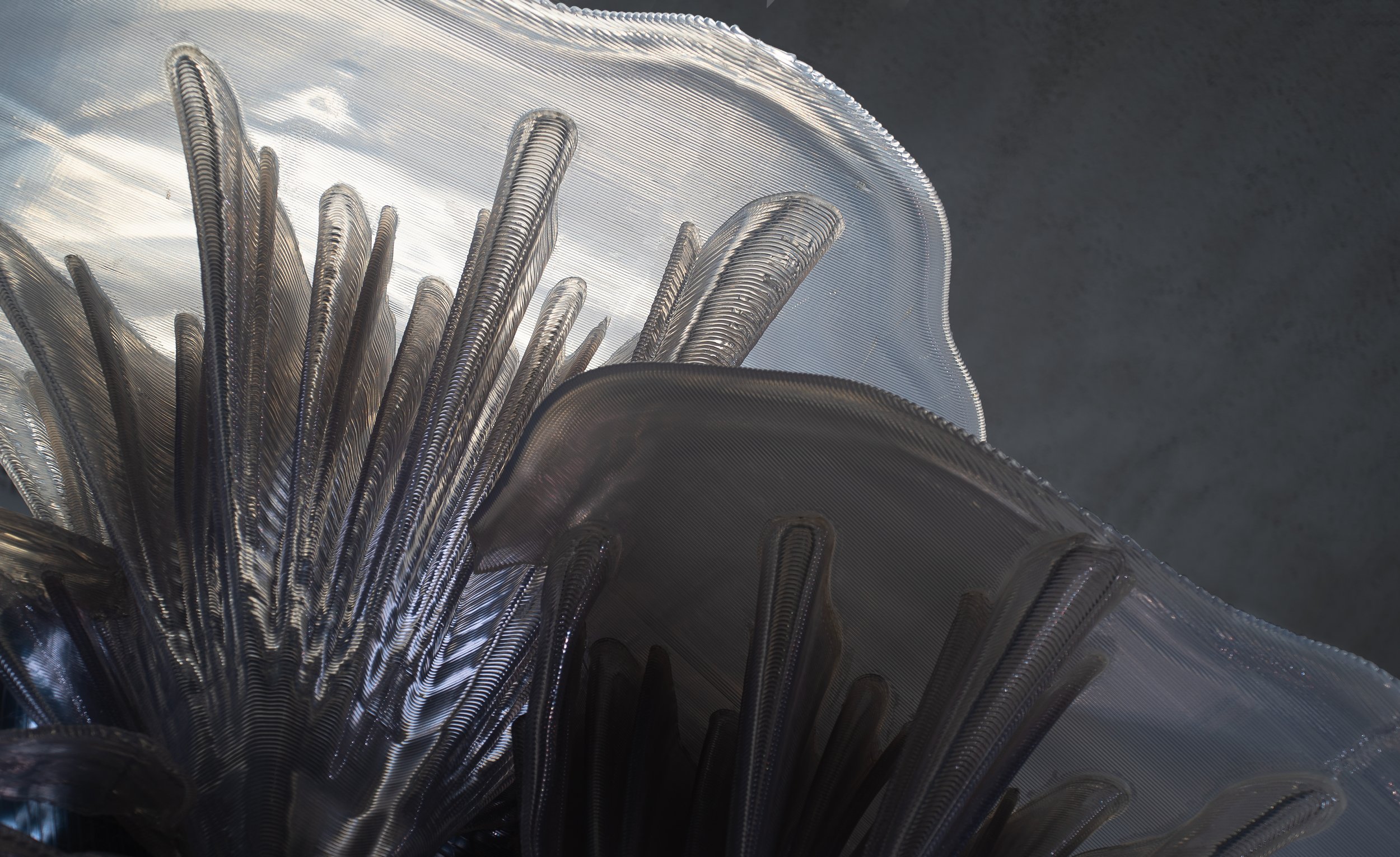FUNGAL FACULTY
An AI-powered artwork rewiring our perception of intelligence
From Fungal intellegence to
Artificial Intellegence.
It is time to reimagine humanities place
in the intelligence hierarchy
This artwork aims to challenge our claim of
intelligent superiority by turning the table on us.
The AI is trained to shift us from controlling
the artwork to being controlled.
In an era where intelligence is becoming fluid, this AI-powered artwork offers an experience aimed at rewiring our perception and position of intelligence.
Today, the paradigms of intelligence are being redefined, moving from artificial neural networks to underground mycelium networks. These mycelium networks raise questions about humanity's standing amidst a broad spectrum of intelligence. They also invite us to consider what we can learn from other forms of intelligence.
Because as a species, while we have often failed to make environmentally intelligent choices, today it's paramount that we attune ourselves to the lessons different forms of intelligence have to offer. First, we need to be challenging our “superior" intelligence and “The Fungal Faculty” does just that.
This collaboration, between ecological artist Thijs Biersteker and The Computational Intelligence research group led by Prof. Dr. A.E. Eiben and inspired by the Broadermind course at Vrije Universiteit Amsterdam, interweaves the ancient intelligence of fungal networks with modern AI. The artwork serves as a mirror, challenging our perceived intellectual supremacy by showcasing how effortlessly we can be guided, and at times dominated, by a seemingly simple AI system.
It can also be perceived as an example of a new life form, giving a hint on the next big thing after AI: Artificial Life.
The AI-fungal art installation is set to provoke a bridge of understanding. Initially, it mimics the user, fostering a sense of familiarity. Yet, as the connection strengthens, the AI starts to turn the tables, revealing the ease with which our actions can be directed. This transformation from directive to subservient offers a compelling insight: sometimes, our intelligence may closely resemble that of a housecat chasing a laser-pointer, easily swayed and directed.
In terms of its design, "The Fungal Faculty" is a harmonious blend of recycled steel and 3D-printed recycled fungal elements. Embedded within this structure is a grid of lights, orchestrated by an AI, which uses a depth sensor as its primary input. This combination offers both a testament to sustainability and a window into the emerging interplay of biology and technology.
Is this time our perception of intelligence is not absolute; it is ever-evolving and ripe for re-evaluation.
Commissioned by
Vrije Universiteit Amsterdam
Artist
Thijs Biersteker
AI developed by
Computational Intelligence Group, Dept. of Comp. Sci., Vrije Universiteit Amsterdam
AI developers
Guszti Eiben, Anil Yaman, Yihong Xi
Production
Woven Studio
Studio Director
Sophie de Krom
Technical Build
Thijs Biersteker, Bastiaan Kennedy
3D printing recycled plastics
The New Raw
Studio assistants
Eline Flick, Storm van Gils, Denisa Půbalová, Tomáš Potůček, Theo Rekelhof
With special thanks to
Erna Klein Ikkink, VU Vereniging, Ivano Malavolta, Dept. of Comp. Sci., Vrije Universiteit Amsterdam, Broader Mind Course









